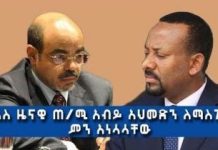The position of Chairperson of the African Union is a prestigious and demanding role that requires a leader with profound vision, experience, and the ability to address the continent’s multifaceted challenges. As Africa grapples with issues such as political instability, economic disparities, and developmental needs, the suitability of candidates for this position must be carefully assessed. Raila Odinga, a Kenyan politician, is among the candidates, but several factors raise questions about his fit for this crucial role:
- Questionable Commitment to Democratic Processes: Raila Odinga’s repeated claims of electoral fraud in his own country, Kenya, raise concerns about his belief in democratic principles. Despite running for the presidency six times and losing each election, Odinga has often contested the legitimacy of the electoral outcomes. His declaration as the “People’s President” in 2017, despite not winning the election, underscores a contentious relationship with democratic norms.
- Disregard for Current Kenyan Leadership: Odinga’s ongoing denial of William Ruto’s presidency in Kenya adds to the controversy surrounding his political stance. Even as Ruto campaigns for Odinga’s potential African Union role, Odinga’s refusal to recognize Ruto’s legitimacy could undermine his credibility on the continental stage.
- Controversial Views on Territorial Integrity: Odinga’s stance on redrawing Africa’s political boundaries, including his public support for the independence of Somaliland and the Sahrawi Arab Democratic Republic, raises dangerous concerns. These views could exacerbate regional conflicts and contribute to instability, which is contrary to the AU’s goal of promoting peace and unity.
- Potential Disregard for AU Charter: There is apprehension that Odinga may not fully adhere to the AU Charter, which emphasizes the importance of respecting national sovereignty and territorial integrity. Such a disregard could undermine the AU’s foundational principles and its role in maintaining stability across member states.
- Limited Influence in Global Politics: The AU currently lacks significant influence on the global stage, and there are doubts about Odinga’s ability to enhance the AU’s international standing. Given the AU’s existing challenges, including its lack of a permanent seat on the United Nations Security Council, Odinga’s capacity to elevate the organization’s profile remains uncertain.
- Raila Odinga could potentially compromise his independence and the AU’s ability to make unbiased decisions, as he might be easily influenced by the host country, #Ethiopia, and other lobbying groups.
- At 80 years old in January 2025, Odinga’s age could be a factor in assessing his suitability to lead a continent with a predominantly youthful population. The need for dynamic and forward-thinking leadership in a rapidly evolving world is critical, and age might impact his ability to connect with and address the needs of Africa’s younger demographic. Globally, there is a trend where elderly candidates are encouraged to step aside for younger leaders.
For instance, U.S. President Joe Biden, despite his prior candidacy, faced significant scrutiny regarding age and ultimately decided not to pursue re-election. This reflects a broader concern about the effectiveness of older leaders in today’s fast-paced political environment.
In conclusion, while Odinga is a notable figure in Kenya politics, these factors suggest that other candidates, such as Djibouti Minister of Foreign Affairs H.E. Mahmoud Ali Youssouf are better positioned to address the AU’s challenges and aspirations. African leaders should carefully consider these aspects when electing the next Chairperson to ensure effective and visionary leadership for the continent.
Wrote by: Farah Ali
Minneapolis, Minnesota






























